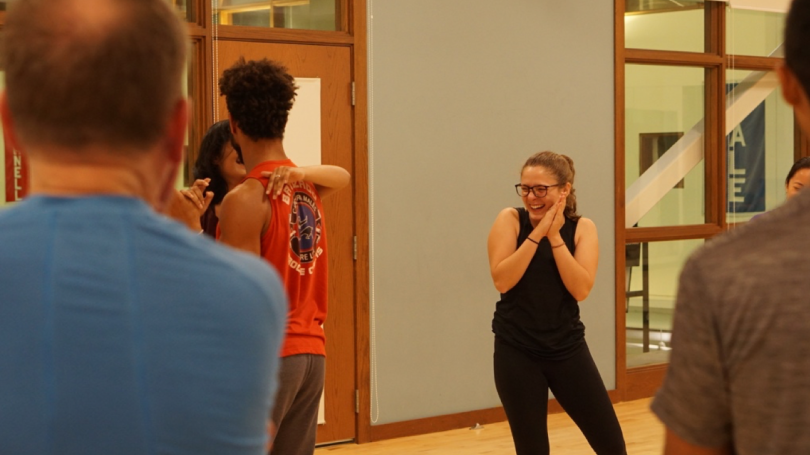
- Public Policy
- Leadership
- Funding
- News & Events
- About the Center
Back to Top Nav
Back to Top Nav
Back to Top Nav
Back to Top Nav
Each fall, winter, and spring, the Rockefeller Global Leadership Program (RGLP) brings together student leaders to increase their understanding of global leadership and intercultural competency. Through weekly sessions with speakers and a culminating experience to either Boston or Montreal, the students are able to learn about themselves and cross-cultural leadership.
Fall 2019 participants were asked to write a blog post, reflecting on the topics and lessons learned throughout the program. Below are reflections from the Fall 2019 cohort who spent a weekend in Montreal as part of their culminating experience.
To be adaptable means to be able to shift your attitude and behavior to fit the situation you’re placed in. It means “rolling with the punches,” so to speak, when you don’t necessarily understand what’s going on all the time. This is especially important in a cultural context. Every culture is unique and may call for different behaviors at different times or challenge your preconceived attitudes towards certain things. Or it may simply put you in a confusing or difficult situation if you are not very familiar with the culture you are visiting or interacting with. Being able to shift your thoughts and actions accordingly can therefore be not only helpful but essential for a harmonious, comfortable cultural interaction.
In this context, much of adaptability is about being open-minded – something we touched on a lot in RGLP. One must first be open to the mere co-existence of other cultures with one’s own, and then ideally, move up from a level of acceptance of difference to one of adaptation and even integration – as illustrated in the Developmental Model of Intercultural Sensitivity. The “Adaptation” stage, the second stage of Ethnorelativism, is described as being able to “shift cultural frames of reference,” and to change behavior for more effective communication in another culture. This may sound like it is not difficult to consciously do, but one’s own “cultural roadmap” can be so deeply ingrained that it is hard to notice when it is necessary to step away from it and look from a different perspective.
As a personal example, I thought I was fairly good at this perspective shift due to my time spent in France every summer; by now I am quite familiar with its culture and how to alter my behavior (read: improve my manners) and the way I view the actions of others. But this is only one culture, and it may be one that I’ve already largely integrated into my own cultural roadmap – in the words of the reading, I may have undergone “accidental biculturalism.” However, when placed in a completely novel cultural experience, I still find myself slow to shift my perspective or behave appropriately: for example, when our RGLP cohort ate at an authentic Caribbean restaurant, I couldn’t help but feel impatient as it felt like the food was taking forever and everything seemed to be moving very slowly. It didn’t even occur to me until later discussion that I was viewing that experience through expectations built from my own cultural experiences and was expecting a different culture to conform to those expectations rather than to adapt to theirs. I will learn from this experience and the feeling of guilt that I had after realizing I had failed to be adaptable; in the future, this will hopefully come more and more easily as I explore various other cultures through my FSPs and travels abroad.
-Written by Emily Pommier ’22, Fall 2019 RGLP Participant
Disclaimer: The views and opinions expressed here are the author’s own and do not necessarily represent the views and opinions of the Rockefeller Center or constitute an endorsement by the Center.